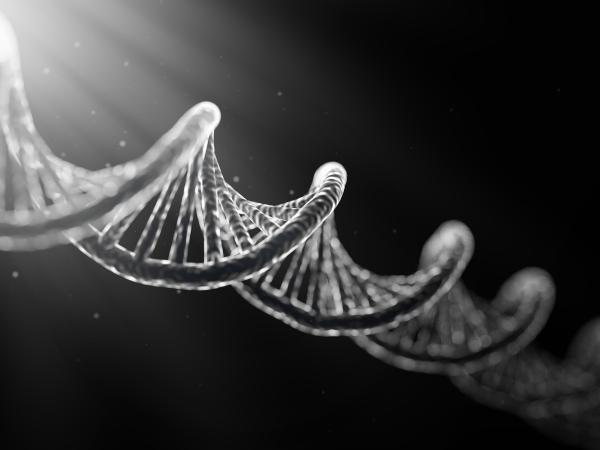
Wouldn't it be simple if science fiction remained fictional and scientific discoveries were made at a pace that we were comfortable with?
But, certain scientific discoveries, like human genome editing, challenge our thinking on many different levels. There are a lot of voices getting into the mix of the debate on human genome editing, taking on the unenviable task of "playing God." One of these voices is the American College of Medical Genetics and Genomics (ACMG.)
The ACMG recently published a statement in their own journal Genetics in Medicine entitled "Genome editing in clinical genetics: points to consider—a statement of the American College of Medical Genetics and Genomics".
The first point that they raise is that the limitations of genome editing technologies will need to be overcome before there is clinical application. Although a lofty goal, this statement is somewhat unrealistic in my opinion. The promise of a cure will, most certainly, be in our grasp before we will be able to overcome all of the limitations. If a cure for HIV infection is available, off target mutations may fall down the totem pole of important points to consider.
The second point is that "clinical application of genome editing technology will require stringent medical and genetic review." The ACMG defines this review process as ensuring that
- the process used to correct a gene must fix the original genetic mutation so that it no longer causes disease
- the process used to correct a gene must not cause any other genetic changes
- the cells used in the process must not have not been genetically altered as part of the process
- the cells have not acquired epigenetic changes (other changes to the DNA that are not a change in sequence) that could result in abnormal function
Again, as with the first point to consider, these are great places to start the conversation, but, it may simply not be possible to cross all of these Ts and dot all of these Is before therapies become useful. Additionally, they do not address who or what agency is best suited to enforce the review process - another question altogether.
Lastly, they mention technical and ethical concerns, including:
- unpredictable consequences to off-target effects of genome editing to an embryo and, because the germ line is involved, to future generations as well.
- unknown epigenetic effects that may alter normal patterns of gene expression in some tissues.
- a larger, global conversation as to the discussion on which genes are acceptable to edit in order to maintain the human species as we know it.
Although the ACMG does not take on the task of thinking critically about how, as a society, we are going to go about making decisions regarding this technology, they mention the formation of a committee to contribute more meaningfully to the debate. I could not agree more with their final sentiment that they strongly encourage broad public debate and look forward to much more of it in the future.
But, the debate cannot occur too far into the future as this technology is progressing faster than we are responding to it. The ACMG state that "genome editing in the human embryo is premature" which implies that we are not ready for it to happen. However, gene editing technology is available now. Therefore, the conversations need to be happening now.
When a baby is born at 25 weeks, the parents are, understandably, not ready for its arrival. However, we are being told that the baby is coming soon. If we do not have the car seat and diapers at home, ready for its arrival, it will be our folly for procrastinating.
The ACMG Board of Directors (Authors of the ACMG statement)
Gerald Feldman, MD, PhD, FACMG
Gail E. Herman, MD, PhD, FACMG
Louanne Hudgins, MD, FACMG
Christa L. Martin, PhD, FACMG
Maren T. Scheuner, MD, MPH, FACMG
Soma Das, PhD, FACMG
Robert D. Steiner, MD, FACMG
Mira Bjelotomich Irons, MD, FACMG
Joel Charrow, MD, FACMG
Lorraine Potocki, MD, FACMG
Kristin G. Monaghan, PhD, FACMG
Tina M. Cowan, PhD, FACMG
Amy E. Roberts, MD, FACMG
Susan D. Klugman, MD, FACMG
Mary C. Phelan, PhD, FACMG
Bruce R. Korf, MD, PhD, FACMG
Lynn D. Fleisher, PhD, JD, FACMG
Michael S. Watson, PhD, FACMG
David B. Flannery, MD, FACMG
Chris Pitro
Melanie Wells



